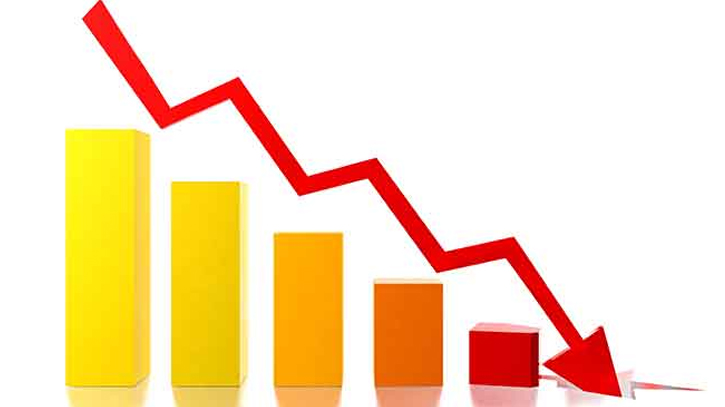
Photo: Collected
The cash flow of 16 banks listed in the capital market has become negative in the first three months (Q1) of this year (January-March), which apparently indicates cash crunch in the country’s economy. The total amount of negative cash flow of the banks stood at Tk 18,972 crore.
The 16 listed banks are – AB Bank, City Bank, First Security Islami Bank, Global Islami Bank, IFIC Bank, Islami Bank, Midland Bank, National Bank, NRBC Bank, Prime Bank, Pubali Bank, South Bangla Agriculture and Commerce Bank, Social Islami Bank, Standard Bank, Trust Bank and Uttara Bank.
Economists are of the view that when a bank’s cash flow becomes negative, that company is experiencing a cash crunch. The more negative the company’s cash flow, the greater the cash crunch.
However, if the cash flow is slightly negative in the short term in the banking company, it does not create a problem. But if the cash flow is negative for long term, the bank is considered to be in trouble.
Among the banks with negative cash flow, Islami Bank is in the worst condition. The bank’s operating cash flow per share stood at negative Tk 52.6 during January-March this year. The company has a total operating cash flow of negative Tk 8,381.61 crore. The bank was positive cash flow in the first three months of last year. At that time the operating cash flow per share was Tk 24.22.
In addition to negative cash flow, the bank’s profit has also been negatively affected. Compared to last year, the profit of the bank has decreased by 33 per cent. In the three months of this year, the bank has made a profit of Tk 0.35 per share. The profit per share was Tk 0.52 in the same period last year. However, despite the negative impact on profits, the bank’s assets increased. At the end of March this year, the net asset value per share stood at Tk 43.43, which was Tk 41.39 in March last year.
Second place is First Security Islami Bank. The company has a negative cash flow of Tk 30.94 per share. It has a total negative cash flow of Tk 3,236.34 crore. The bank’s cash flow was negative last year as well. The negative cash flow per share was Tk 4.81 during January-March last year. As a result, the company’s negative cash flow has increased almost eight times.
AB Bank’s total negative cash flow stood at Tk 1,485.80 crore as the cash flow is negative at Tk 18.42 per share. The bank’s profit and assets have also been negatively impacted. The cash flow per share of City Bank, which is in the list of large negative cash flow, stood at negative Tk 10.71. The total negative cash flow of the bank stood at Tk 1,285.84 crore.
Besides, the negative cash flow per share of Global Islami Bank stood at Tk 10.96. The total negative cash flow stood at Tk 1,030.69 crore. IFIC Bank’s total negative cash flow stood at Tk 544.70 crore due to a negative cash flow of Tk 3.5 per share. As Midland Bank has a negative cash flow of Tk 0.80 per share, the total negative cash flow stood at Tk 51.17 crore.
National Bank’s negative cash flow per share stood at Tk 2.27. In this, the total cash flow of the bank stood at negative Tk 730.88 crore. Besides cash flow negative, the bank has plunged into losses. As a result, there has been a negative impact on asset prices.
NRBC Bank’s negative cash flow per share stood at Tk 1.27. The total cash flow stood at negative Tk 100.70 crore. Prime Bank’s negative cash flow per share stood at Tk 1.35, making the total cash flow a negative Tk 152.85 crore.
Cash flow per share of Pubali Bank stood at negative Tk 5.58 in the three months of this year. So that the total cash flow stood at negative Tk 573.78 crore. The negative cash flow per share of South Bangla Agriculture and Commerce Bank stood at Tk 0.43. The total cash flow stood at negative Tk 35.44 crore. As the cash flow of Social Islami Bank was negative Tk 5.83 per share, the total cash flow stood at negative Tk 602.91 crore.
Meanwhile, Standard Bank’s cash flow per share stood at negative Tk 2.82. The total cash flow has become negative by Tk 299.50 crore. Trust Bank’s cash flow per share stood at negative Tk 1.51. The total cash flow stood at negative Tk 117.53 crore. Cash flow per share of Uttara Bank stood at negative Tk 4.67. As a result, the total cash flow stood at negative Tk 342.71 crore.
In this regard, Ahsan H Mansur, Executive Director of Policy Research Institute and Chairman of Brac Bank said, if the bank’s cash flow becomes negative, there is definitely a cash crisis. A bank’s cash flow can be negative for a number of reasons.
“One is that the management is not good. They may be lending without keeping liquidity which is a bad practice,” he said, adding: “Another reason may be, they are lending in the hope of more profit without keeping liquidity. This is also a bad practice. Even if cash withdrawals pick up, cash flow can still turn to be negative and banks should stay away from such situations.
Dr AB Mirza Azizul Islam, advisor to the former caretaker government, said the interest that banks currently give on savings is less than inflation. So, if you save in the bank, you will lose capital.
In this situation, the deposits of the banks have decreased. However, the situation is not satisfactory. But banks are unlikely to fail in the near future, he hoped.
TDM/SD








